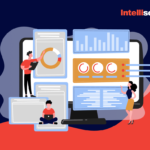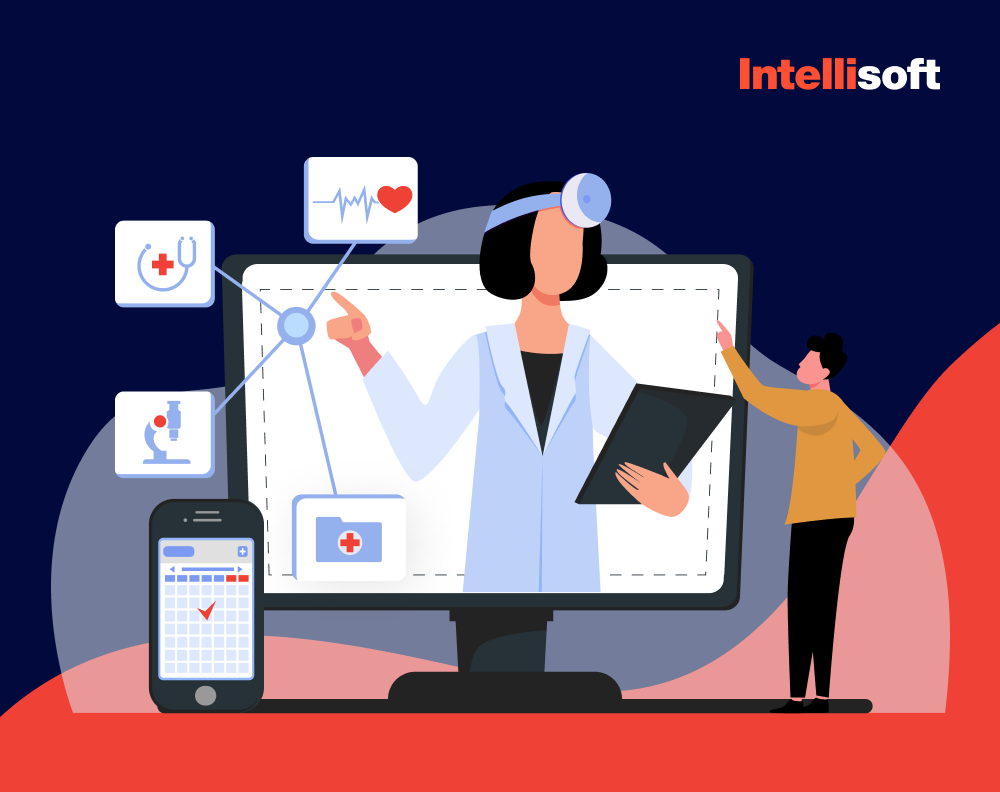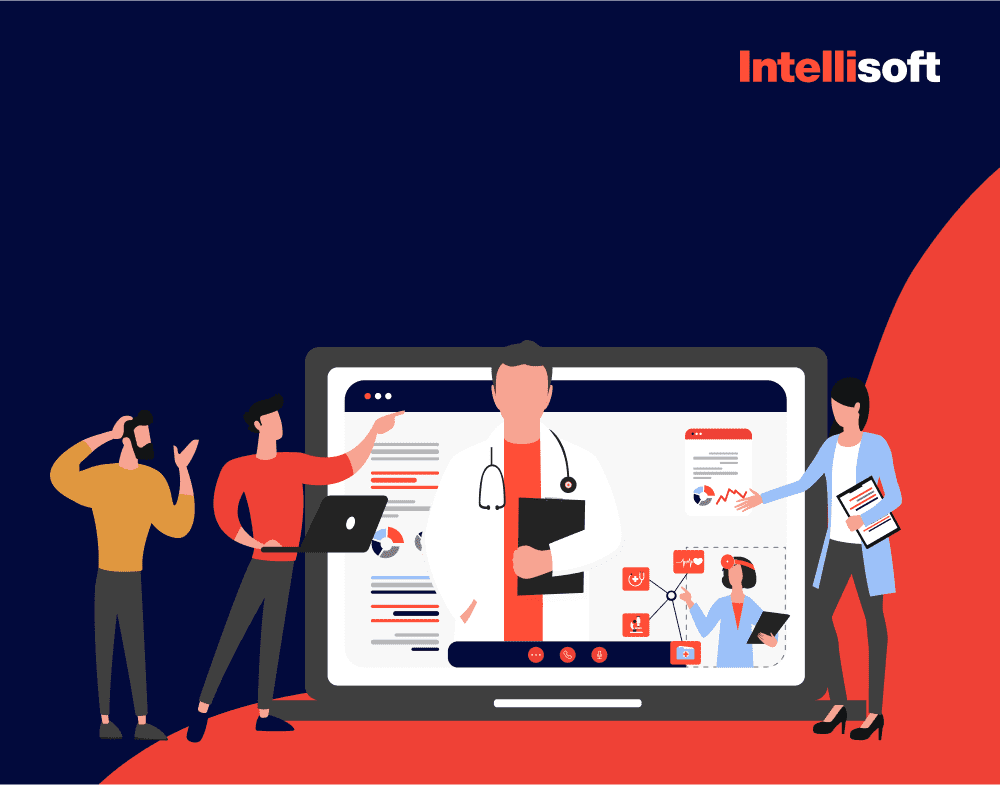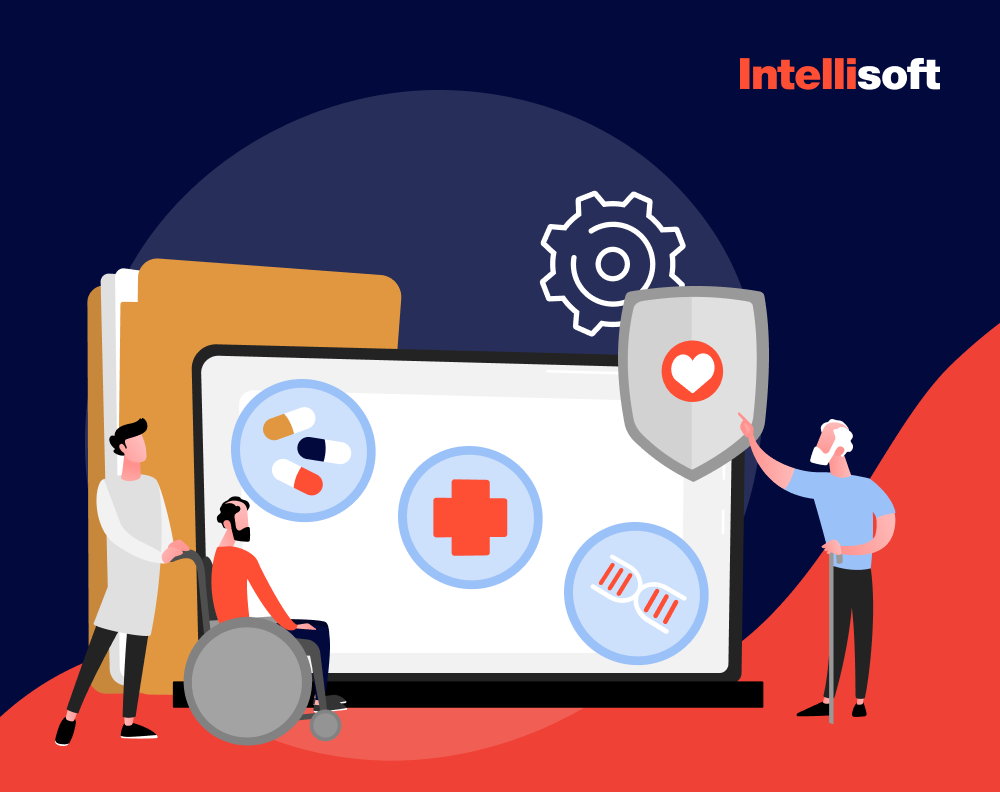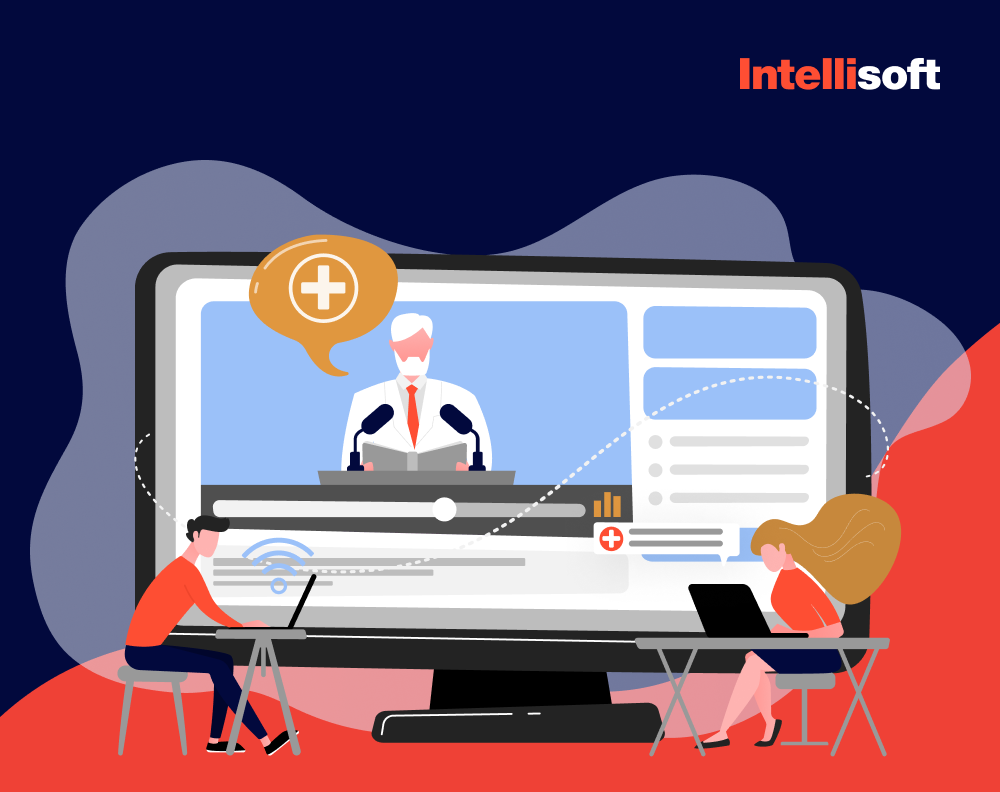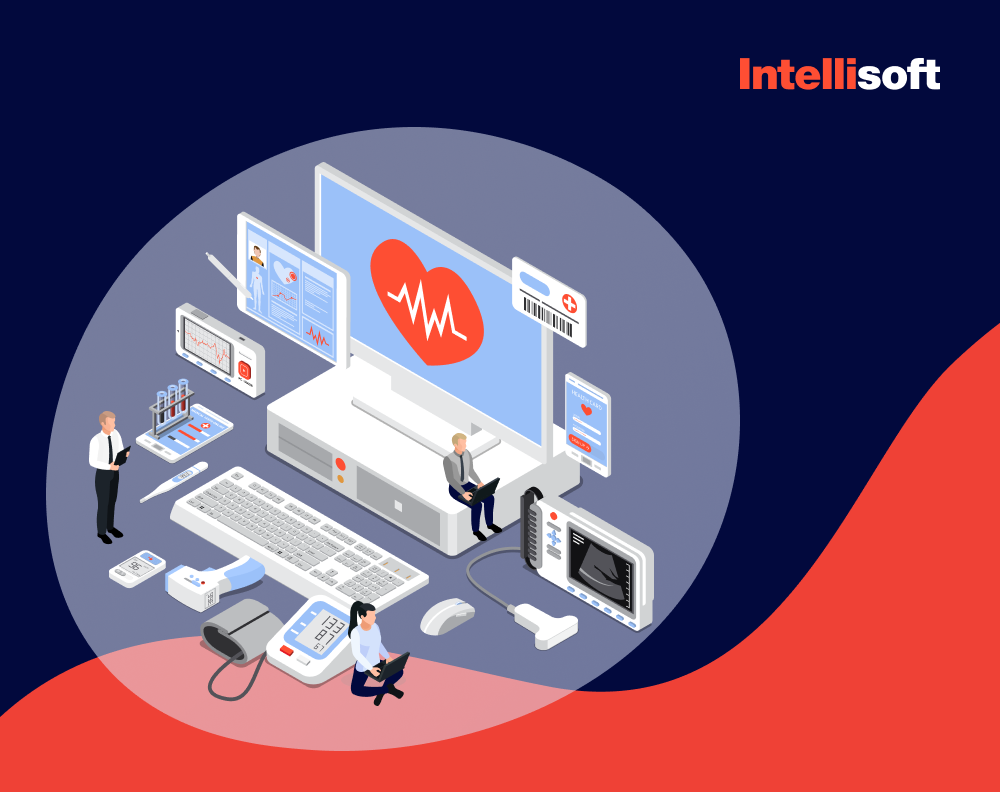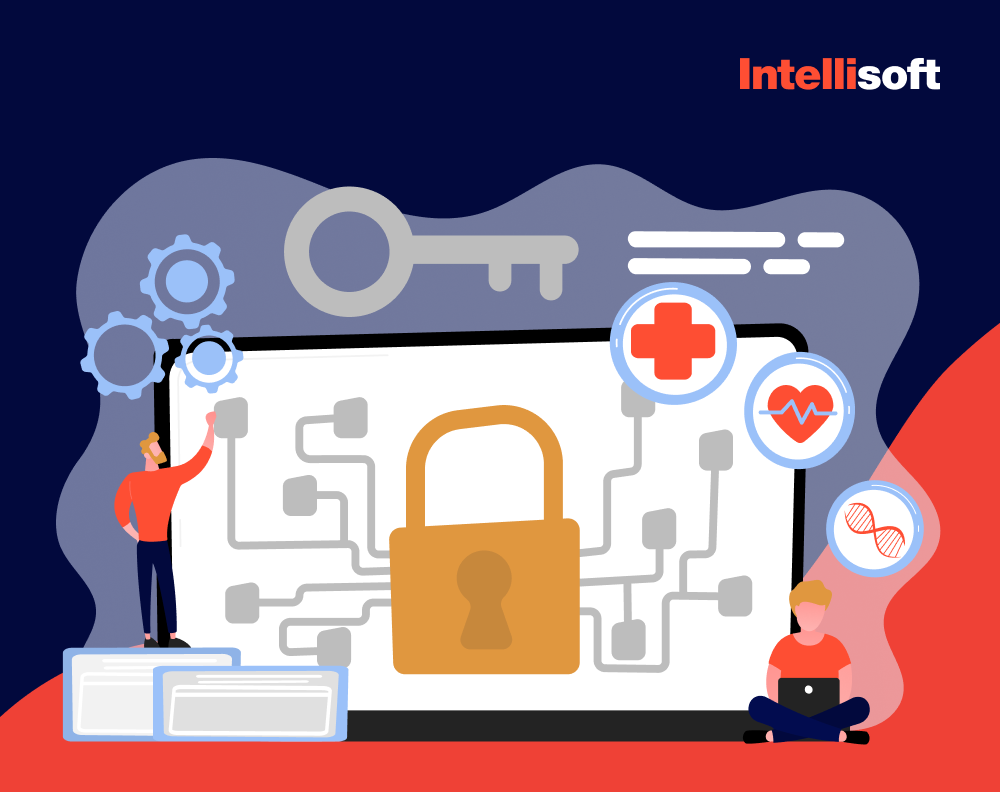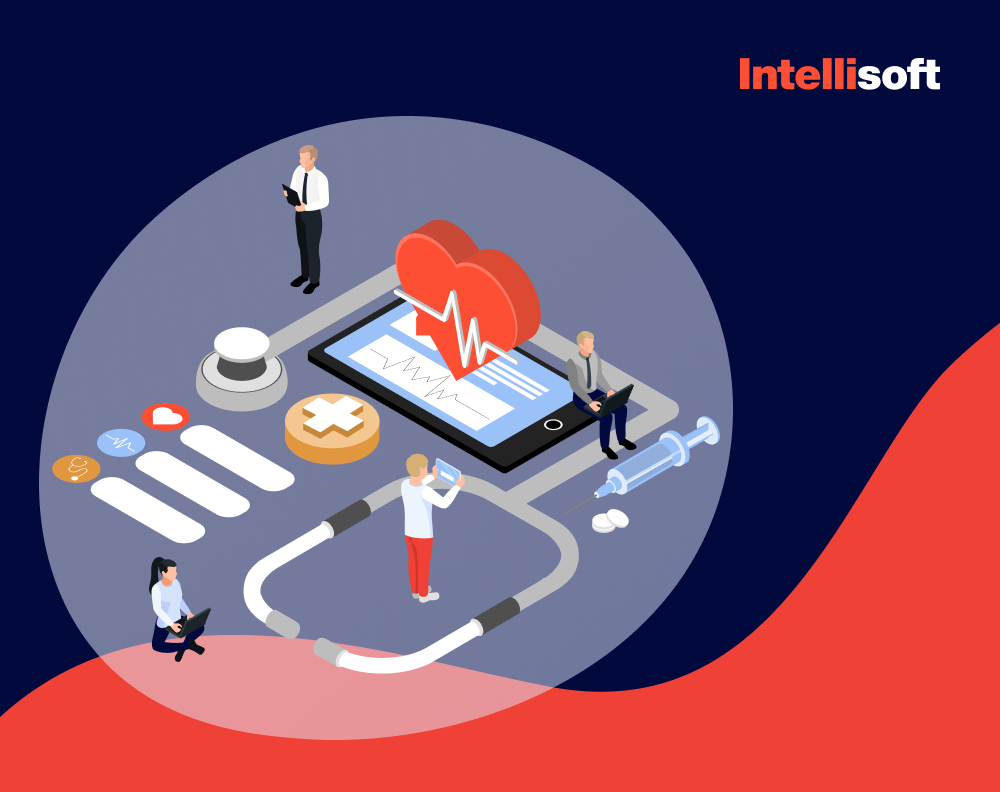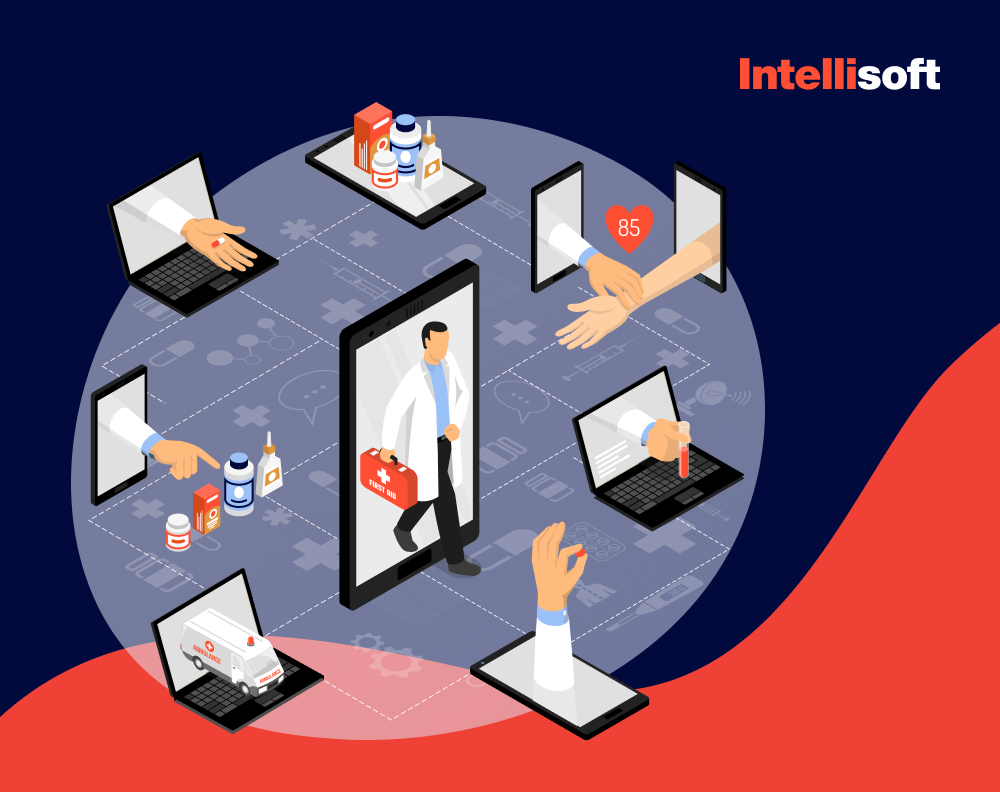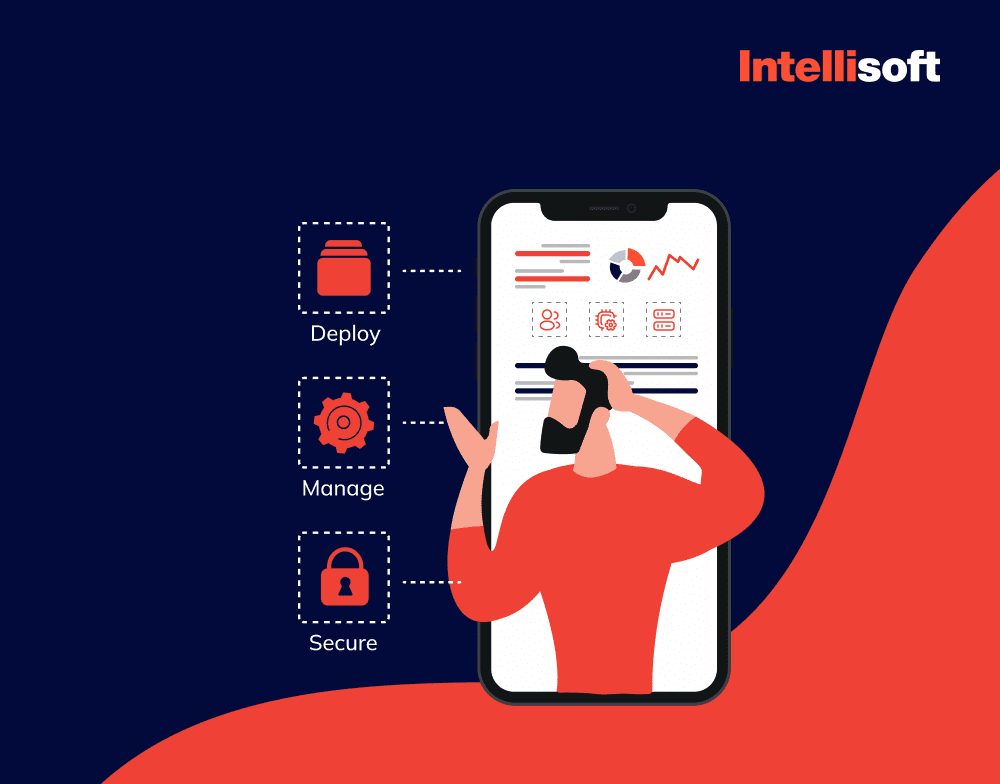All healthcare professionals, from clinicians to nurses, work tirelessly to improve care and enhance experiences. The introduction of patient management system software has significantly changed the game. At IntelliSoft, we recognize the importance of timely and efficient healthcare delivery. With global trends moving towards technological integration, our advanced healthcare software lead this transformation.
The medical practice management software market is expected to reach an impressive $10.87 billion by 2032. This growth highlights a significant shift. More healthcare providers are adopting sophisticated systems to streamline operations, optimize payment processes, and reduce documentation burden. Keep reading to see how our patient information management system can transform your organization to keep up with industry advancements.
Table of Contents
Overcoming Challenges in Healthcare: The Need for Advanced Patient Management System Software
What is patient record management system? Healthcare professionals are constantly pressured to deliver quick, high-tech, personalized, and efficient care. The goal is clear: more care and less paperwork. However, without a solid Patient Management System (PMS), healthcare providers face numerous challenges affecting care quality and operational efficiency.
Economic and Operational Hurdles
Healthcare costs are rising, worsened by irregular visits and inefficient procedures. Without a sophisticated PMS, payment processes involving multiple insurers become complex. This not only strains administrative resources but also delays care. The lack of an effective system also leads to long wait times and reduced patient satisfaction, creating a harmful cycle that impacts both service quality and healthcare outcomes.
Documentation and Data Sharing Challenges
Managing sensitive data is one of the biggest issues in healthcare today. Many facilities still use manually recorded personal records, resulting in incomplete and unreliable medical histories. This lack of reliable data hinders consistent and informed care. Moreover, the difficulty in quickly sharing information across departments or different locations complicates clinical workflows and delays treatment adjustments.
The Digital Front and Patient Expectations
The healthcare landscape is also shaped by digital expectations. Approximately 94% of potential patients look at online reviews before choosing a healthcare provider, highlighting the importance of a strong online presence. But having a website is no longer enough. Patients seek evidence of efficient and responsive care, which a modern PMS can significantly enhance.
The Imperative for Patient Satisfaction
Enhancing satisfaction is central to addressing healthcare challenges. Surveys show that by 2020, 89% of physicians and healthcare organizations had adopted patient management solutions. This trend is clear. Implementing a PMS streamlines administrative processes and significantly improves client satisfaction by ensuring timely, personalized, and efficient care.
Healthcare providers must adopt comprehensive management systems to meet and exceed modern patient expectations. This shift addresses immediate operational challenges and sets the stage for a future where healthcare is more accessible, responsive, and people-centered.
The Essential Role of Patient Management Systems in Modern Healthcare
Let’s start with the patient management system definition. Healthcare professionals increasingly see PMS as crucial for enhancing patient care and improving healthcare operations. A PMS is a system integrated into your healthcare setting designed to address many challenges and fundamentally and transform medical care.
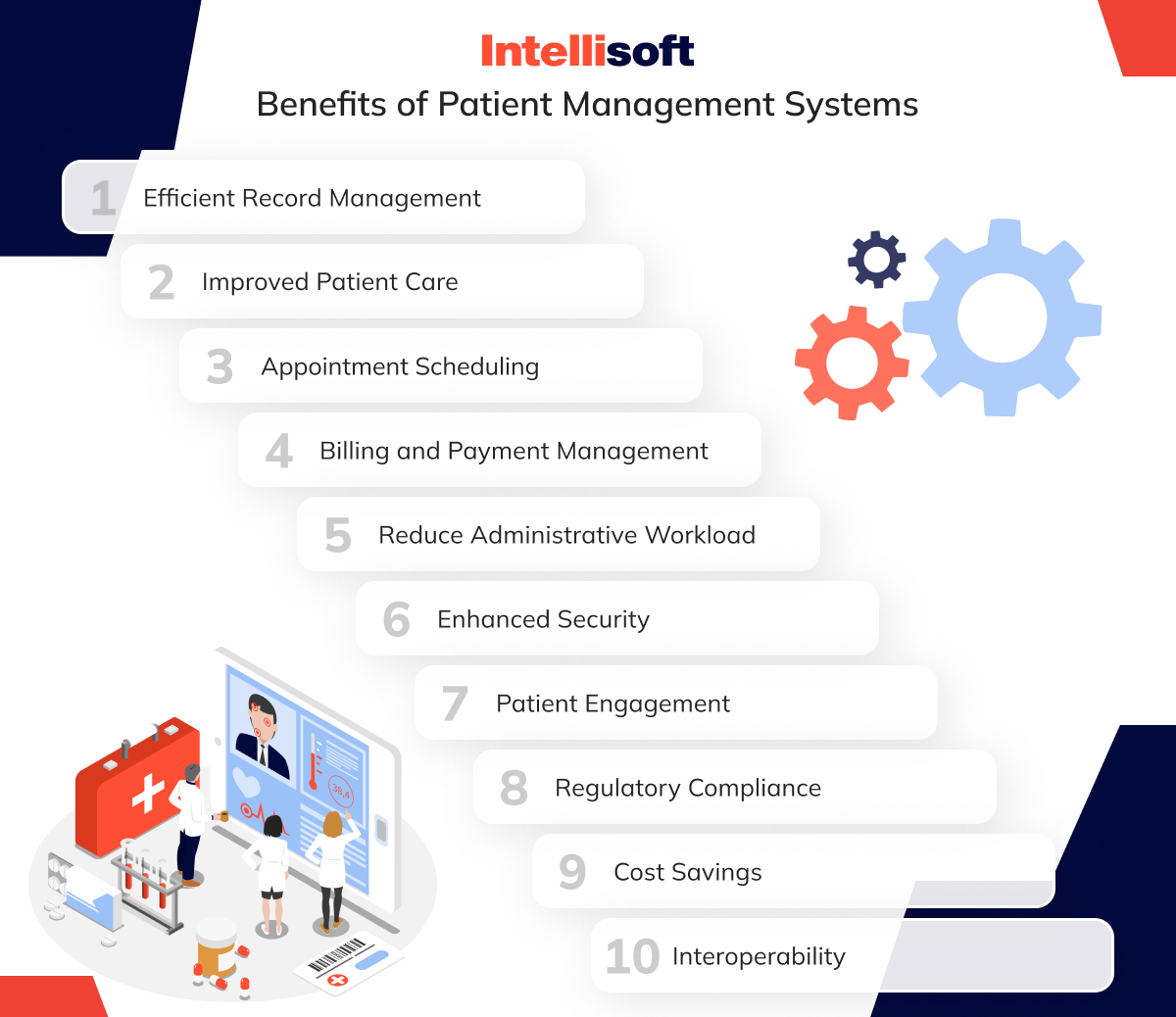
Streamlining Healthcare Operations
A robust PMS automates and integrates key processes like scheduling, billing, and managing electronic medical records. This automation reduces administrative burdens, allowing healthcare providers to focus more on direct care. By simplifying workflows and reducing human error, operations become smoother and more reliable.
Enhancing Communication and Coordination
Effective communication is vital for successful healthcare delivery. A PMS improves communication within healthcare teams and between providers and patients. With up-to-date personal information readily accessible, a PMS supports coordinated care and efficient treatment planning. This seamless information flow is essential for synchronizing various healthcare services, ultimately improving treatment outcomes.
Improving Quality of Care
Having immediate access to comprehensive records and data from medical devices allows healthcare providers to make better-informed decisions, leading to more accurate diagnoses and timely interventions. A PMS reduces the risks of manual record-keeping by maintaining organized and detailed electronic records that are easily accessible. This precision and accessibility are crucial for delivering high-quality healthcare.
Increasing Operational Efficiency
PMS greatly improves the efficiency of patient flow throughout healthcare facilities—from registration and treatment to discharge. This streamlined process reduces wait times and enhances the experience by ensuring services are delivered promptly and smoothly.
Promoting a Paperless Environment
Moving towards a paperless environment is a technological upgrade and promotes environmental sustainability. Digital records are easier to manage, store, and retrieve than paper files. This shift speeds up the documentation process and enhances the security and privacy of personal information, contributing to overall operational efficiency and compliance with regulatory standards.
Integrating a hospital patient management system is more than just a technological improvement; it fundamentally enhances healthcare services. By adopting a PMS, healthcare providers ensure their operations are efficient, secure, and client-focused, setting a new standard in healthcare excellence.
What Is Patient Management System
PMS plays a crucial role in modern healthcare, integrating and managing every aspect of a patient’s care journey—from administrative tasks to medical processes. This specialized software enhances efficiency and supports better outcomes, transforming the healthcare landscape.
Centralizing Critical Functions
At its core, PMS is a centralized platform that combines various healthcare functions into one cohesive interface. This includes scheduling appointments, managing patient flows, storing and retrieving personal records, and handling billing and invoicing. By centralizing these essential functions, PMS eliminates redundancies and delays often found in disjointed systems, facilitating smoother, more efficient healthcare operations.
Enhancing Efficiency across Departments
One of the biggest benefits of patient management software is its ability to improve communication and cooperation across different departments within a healthcare facility. Whether making medical records accessible to all treating physicians or seamlessly integrating billing details with administrative records, PMS streamlines interactions across various departments. This integration ensures that each part of the care process is informed by up-to-date, accurate data, enhancing overall operational efficiency.
Supporting Clinical Decisions
Beyond administrative convenience, patient management software is crucial in supporting healthcare providers’ clinical decisions. By providing quick and secure access to comprehensive medical information, PMS enables doctors and medical staff to make more informed diagnoses and treatment plans. Access to detailed case histories and real-time data from medical devices helps craft precise and personalized care plans, leading to better outcomes.
A Catalyst for Effective Healthcare Delivery
Patient management software goes beyond organization—it acts as a catalyst for more effective healthcare delivery. By reducing the time spent on administrative tasks, PMS allows healthcare providers to focus more on care. It also minimizes errors associated with manual data entry and record-keeping, safeguarding personal health information.
PMS is a comprehensive solution that empowers healthcare providers to deliver higher-quality care. By integrating various healthcare functions into a single interface, PMS ensures that healthcare facilities operate with peak efficiency and effectiveness.
Core Features of a Comprehensive Electronic Patient Record Management System
A Patient Information Management System (PMS) provides healthcare providers with various tools to optimize administrative and clinical tasks. Understanding the essential features of a PMS is crucial for healthcare organizations aiming to enhance efficiency and care.
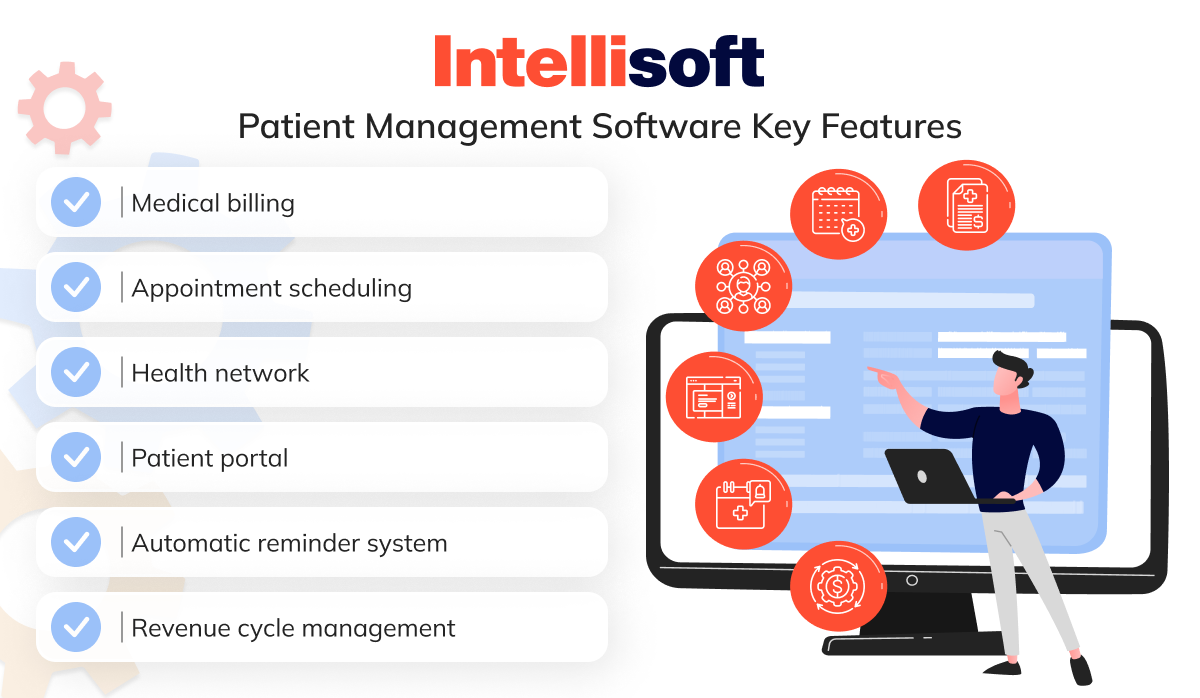
Here are the must-have patient management system features that define an effective PMS:
User Roles
A good PMS offers a multi-level access system, ensuring that healthcare professionals can perform their duties efficiently while keeping data secure. This feature allows specific user rights and access controls based on job functions, from administrative staff to doctors, ensuring that sensitive personal information is handled appropriately and securely.
Medical Billing
Medical billing is a critical yet complex part of healthcare management. An advanced PMS simplifies this process by automating billing tasks, tracking patient charges, and seamlessly managing invoices. It verifies insurance eligibility at check-in, tracks prescription details, and accurately records all financial interactions. Advanced systems can even integrate with pharmacies to direct the billing of medications. The ability to send automated payment reminders via email, SMS, or other means significantly reduces the burden of manual follow-ups.
Appointment Scheduling
Appointment scheduling is a fundamental feature of any PMS. It addresses modern clients’ preferences for online booking options. A robust PMS enables efficient scheduling by integrating calendars across departments, allowing patients to view doctor availability and book appointments conveniently online. This feature helps reduce no-shows by facilitating easy rescheduling and sending automatic appointment reminders.
Health Network
An integrated patient management system within a health network enhances care through better data collection and analytics. It supports sharing personal information across different healthcare settings, enabling a coordinated approach to care. This network provides valuable insights into patient demographics, risk assessments, and the effectiveness of treatment plans, contributing to improved diagnostic accuracy and personalized care.
Patient Portal
The patient portal is a critical component of a PMS, giving people direct access to their health information. Through the portal, patients can update personal information, access medical records, communicate with healthcare providers, and make payments. This feature empowers clients to participate actively in their healthcare processes and enhances transparency and trust between patients and providers.
Automatic Reminder System
An effective PMS includes an automatic reminder system to tackle the challenges of missed appointments and delayed payments. This system notifies patients of upcoming appointments and due payments, improving the efficiency of healthcare services. By automating these reminders, the system ensures consistent and timely communication, maintaining a smooth operational flow.
Revenue Cycle Management
Revenue cycle management within a PMS is essential for maintaining a healthcare facility’s financial health. This feature oversees the entire billing cycle—from service delivery to final payment—ensuring that all financial processes are streamlined and transparent. It allows for online payments and flexible payment plans, making it easier for patients to manage their healthcare expenses.
Incorporating these pivotal features, a hospital patient management system simplifies administrative and clinical operations while enhancing the quality of care. By streamlining essential processes, a PMS allows healthcare facilities to focus more on what matters most: delivering excellent care.
Related readings:
- Hospital Management Software: Drive Superior Patient Outcomes
- Healthcare App Development Guide: Transforming Patient Care with User-Centric Solutions
- Hospital App Development: Innovate, Integrate, and Provide Better Care
- mHealth Apps For Patients: A Complete Guide
- Prescription Management Software: The Future of Pharmacy
Deciding Between Custom and SaaS PMS
Choosing the right online patient management system (PMS) is crucial for healthcare organizations. It affects both the quality of services and the efficiency of operations. Whether to develop a custom PMS or opt for a Software as a Service (SaaS) solution depends on several factors related to your organization’s specific needs, resources, and goals.
Opt for Custom Software Development When:
A custom online patient management system is ideal in certain circumstances. They offer solutions designed specifically to meet the unique needs of your healthcare facility:
Unique Requirements
A custom PMS may be necessary if your healthcare organization has specific needs that standard SaaS solutions cannot address. Custom systems offer greater flexibility regarding features and integration with existing systems.
Complex Integrations
Custom solutions provide the necessary compatibility and functionality for healthcare facilities requiring complex integrations with existing hardware or software systems.
Long-Term Investment
While the initial development cost is higher, a custom PMS can be more cost-effective in the long run. It eliminates recurring subscription fees and offers more control over future modifications and scaling.
Data Security and Compliance
Custom software development ensures all compliance requirements are met if your organization operates under strict data security regulations or needs advanced security protocols that generic SaaS solutions do not provide.
Choose SaaS Solutions When:
For many healthcare organizations, SaaS solutions for patient management are often the more practical choice due to several advantages:
Cost-Effectiveness
If budget constraints are a significant concern, SaaS systems are advantageous due to their lower upfront costs. Instead of a large initial investment, SaaS solutions typically operate on a subscription basis, spreading the cost over time.
Speed of Deployment
When time is of the essence, SaaS solutions are ideal. They are generally ready-to-use with minimal setup required, allowing for rapid deployment across healthcare facilities.
Less Technical Maintenance
SaaS providers handle all maintenance, updates, and security, which can relieve organizations with limited IT resources. This offloading of technical tasks ensures the system remains up-to-date without additional strain on your staff.
Flexibility and Scalability
Modern SaaS offerings are designed to be flexible and scalable. They can accommodate growth in the number of visits or expansion of services without needing significant system overhauls.
Your organization’s specific needs, resources, and strategic goals should guide your decision about a custom or SaaS hospital patient record management system. While custom systems offer tailored solutions and independence, SaaS systems provide cost efficiency, ease of use, and flexibility, making them suitable for various healthcare settings.
Selecting the Right Tech Stack for a Custom Patient Management System
Developing a robust online patient record management system tailored to a healthcare organization’s specific needs requires a carefully chosen technology stack. This stack must efficiently handle sensitive healthcare data while ensuring compliance with strict regulations like HIPAA. Here’s an overview of the recommended tech stacks and tools well-suited for creating advanced healthcare applications, particularly PMS.
MEAN/MERN Stack
The MEAN (MongoDB, Express.js, Angular, Node.js) and MERN (MongoDB, Express.js, React, Node.js) stacks are modern, full-stack development frameworks ideal for building scalable and dynamic PMS:
MongoDB
A flexible, NoSQL database that handles diverse sensitive data efficiently and scales as the user base grows.
Express.js
Streamlines the development process by managing routing and middleware requirements, simplifying backend construction.
Angular/React
These powerful front-end frameworks enhance the user interface with dynamic updates essential for real-time data management.
Node.js
Supports the development of fast and scalable server-side applications, which is crucial for handling multiple interactions simultaneously.
LAMP Stack
The LAMP stack (Linux, Apache, MySQL, PHP) is a traditional choice for web application development, known for its stability and robustness:
Linux
Offers a secure and stable operating system for hosting the application.
Apache
Manages the web server, handling requests between the client and server efficiently.
MySQL
Provides reliable management of structured data storage through its well-established relational database system.
PHP
Many prefer to develop their patient management system project in PHP because of its simplicity and effectiveness in server-side scripting, which leads to faster web application release.
Public Repositories
If the enterprise patient management system pricing hurts your budget, leveraging public repositories can significantly reduce development time and costs for a PMS. Developers can utilize pre-coded repositories that cater to the needs of healthcare systems. Public patient management system examples include:
A Java-based PMS developed by Tobias Büschel using Swing, GitHub Actions, SonarCloud, and Gradle offers a cloud based patient management system with a structured framework for managing patient information efficiently.
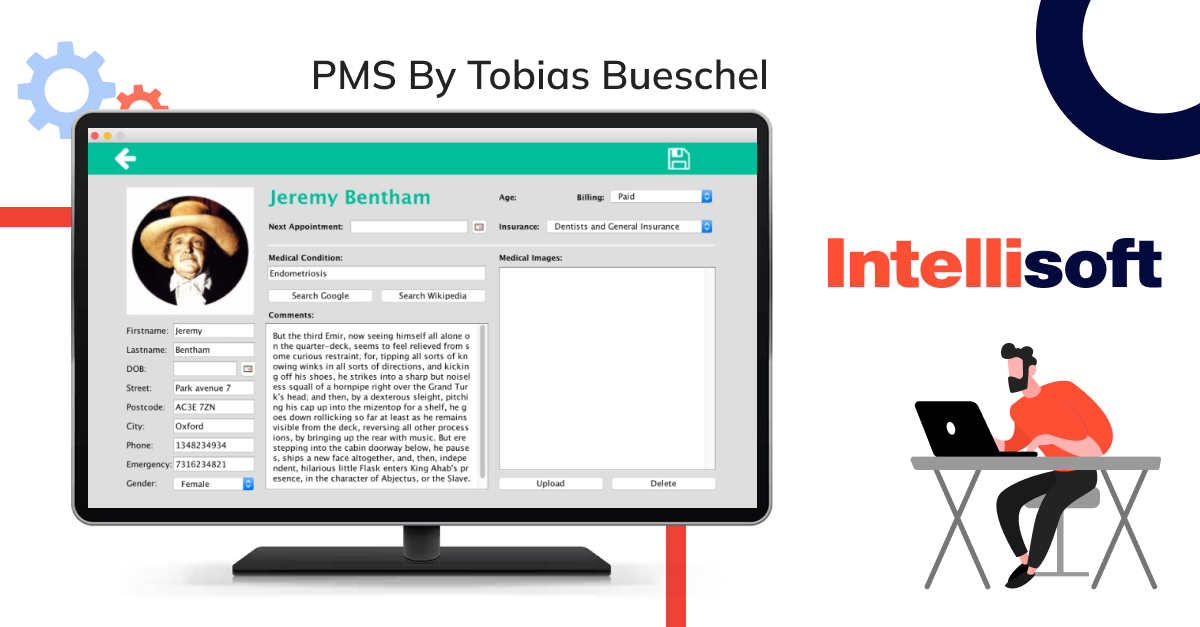
The online healthcare management system developed by Abdullah Al Alave using Laravel provides a flexible and powerful platform for reducing managerial constraints in the healthcare industry.
A PMS in Laravel and MySQL for the Gille Momeni in Cameroon is designed to streamline profile registration, appointment scheduling, and medical record management.
An online platform for multiple hospitals developed by Python Ninja using Django enables the tracking, monitoring, and sharing of personal health records across facilities. It also features online appointments and payments.
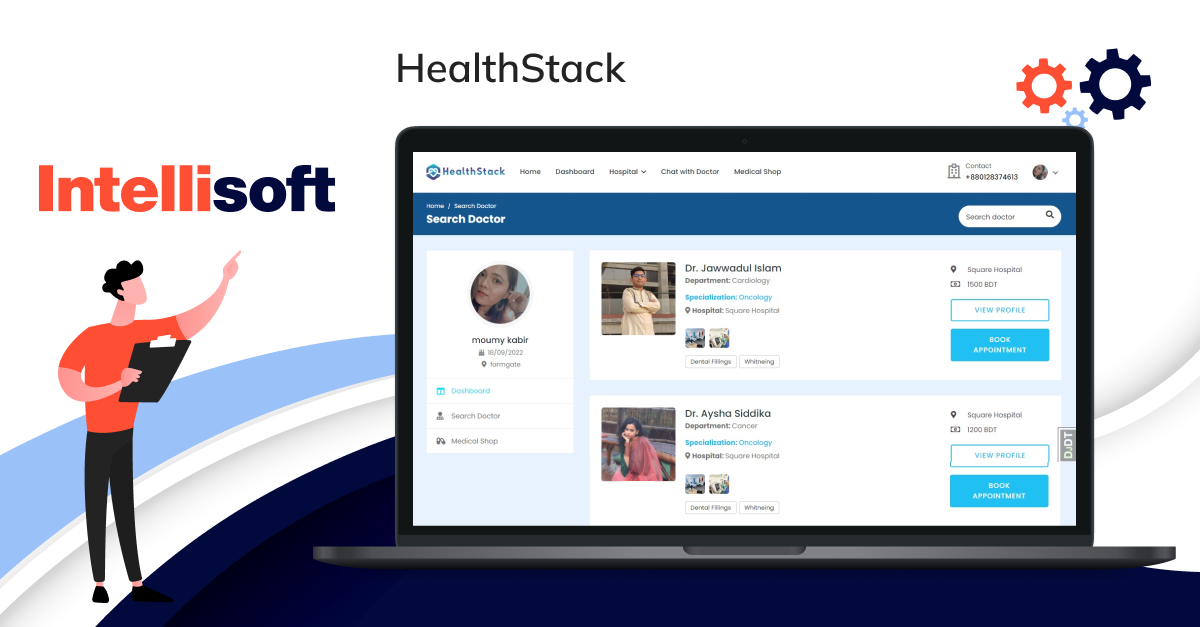
These public repositories offer a range of ready-to-use solutions that can be adapted or extended based on specific requirements, providing a solid foundation for developing a comprehensive and efficient patient queue management system.
HIPAA-Compliant Security Measures
Implementing HIPAA-compliant security measures is non-negotiable when developing a PMS:
- Encrypt sensitive health information using protocols like AES and secure transmission channels like SSL/TLS.
- Only allow authorized access to sensitive data, enhanced by multi-factor authentication and strong password policies.
- Remove personally identifiable information for testing or research to safeguard patient privacy.
- Continuously assess potential vulnerabilities in both software and hardware to maintain security.
- Use checksums or hashes to ensure data has not been altered or tampered with.
- Develop comprehensive plans to restore data quickly and securely in case of data loss.
Leading SaaS Patient Care Management System Examples
The healthcare technology landscape constantly evolves, with Software as a Service (SaaS) platforms at the forefront of this transformation. These platforms offer robust, cloud-based solutions that simplify complex processes, improve care, and enhance the efficiency of healthcare operations. Here are some key SaaS patient data management system examples that significantly impact the healthcare industry.
Healthray
Healthray is a comprehensive digital system designed to help medical professionals manage personal health information and care more effectively. This platform centralizes medical records, appointments, and treatment plans, making it easier for doctors to access and manage data swiftly. Healthray enhances the operational efficiency of hospitals and clinics and empowers patients by providing access to their health records, ensuring they stay informed about their medical care.
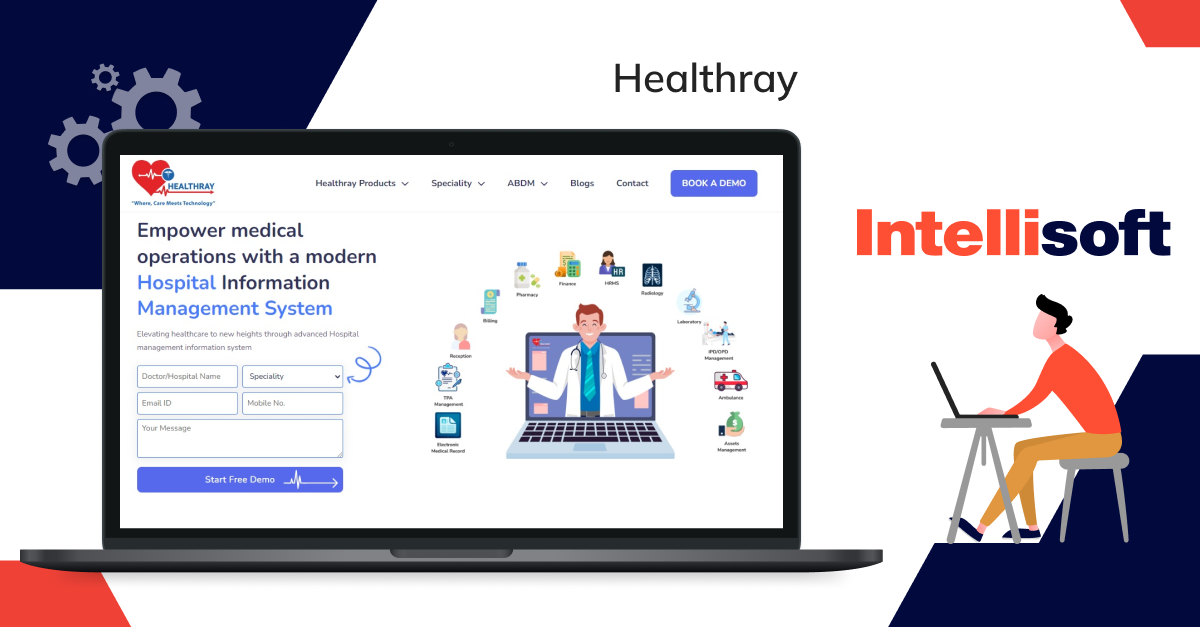
Top Benefits of Healthray:
- Easy access to records
- Efficient appointment scheduling
- Streamlined billing and insurance claims processing
DrChrono
DrChrono is a digital assistant that simplifies patient management, appointment scheduling, and billing for healthcare providers. This all-in-one solution enhances the functionality of medical offices by integrating essential services into a single platform. With mobile access, doctors can manage their schedules, prescribe medications, and process bills on the go, making healthcare delivery more efficient for providers and patients.
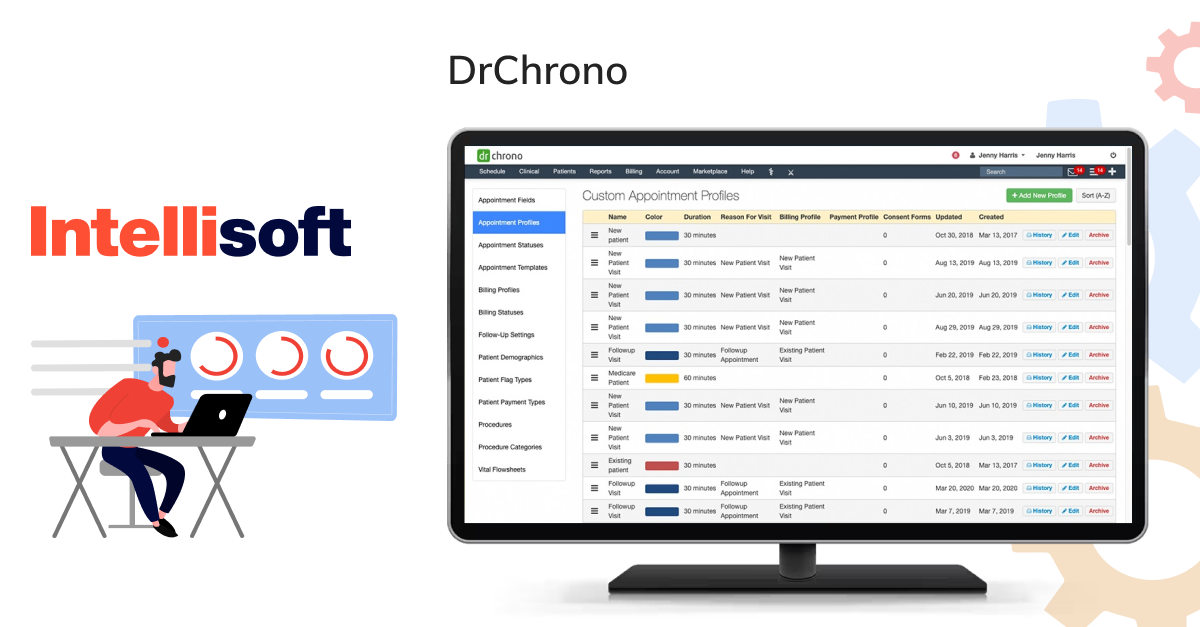
Top Benefits of DrChrono:
- Comprehensive charting
- Mobile access for on-the-go healthcare management
- Integrated medical billing system
Kareo Clinical
Kareo Clinical is known for its user-friendly electronic medical records (EMR) and practice management (PM) interface, consolidating personal information into an easily navigable format. This system streamlines the management of appointments, billing, and patient records, making it an indispensable tool for healthcare providers looking to enhance clinic operations.
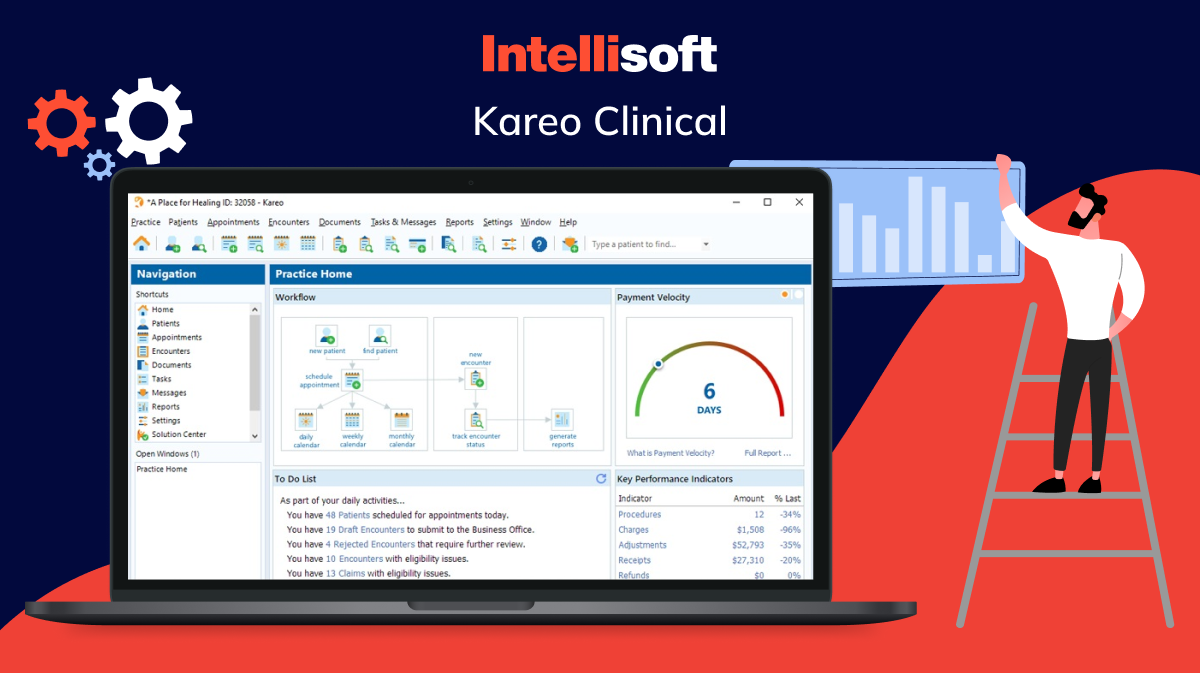
Top Benefits of Kareo Clinical:
- Intuitive user interface
- Robust control tools for healthcare management
- Enhanced portal communication
Netsmart myUnity
Netsmart myUnity is versatile healthcare software that enhances treatment and administrative task efficiency. It integrates functionalities such as electronic health records and telemedicine capabilities, facilitating a comprehensive approach to care. By streamlining communication between healthcare providers, MyUnity ensures a more coordinated and effective patient care experience.

Top Benefits of Netsmart myUnity:
- Advanced electronic prescribing
- Integrated telemedicine capabilities
- Efficient revenue cycle management
NextGen
NextGen is a robust healthcare software that organizes patient information for doctors, hospitals, and clinics. It supports the maintenance of comprehensive medical records, appointment scheduling, and billing management. Known for its innovative approach, NextGen aids healthcare providers in monitoring and improving health outcomes effectively.
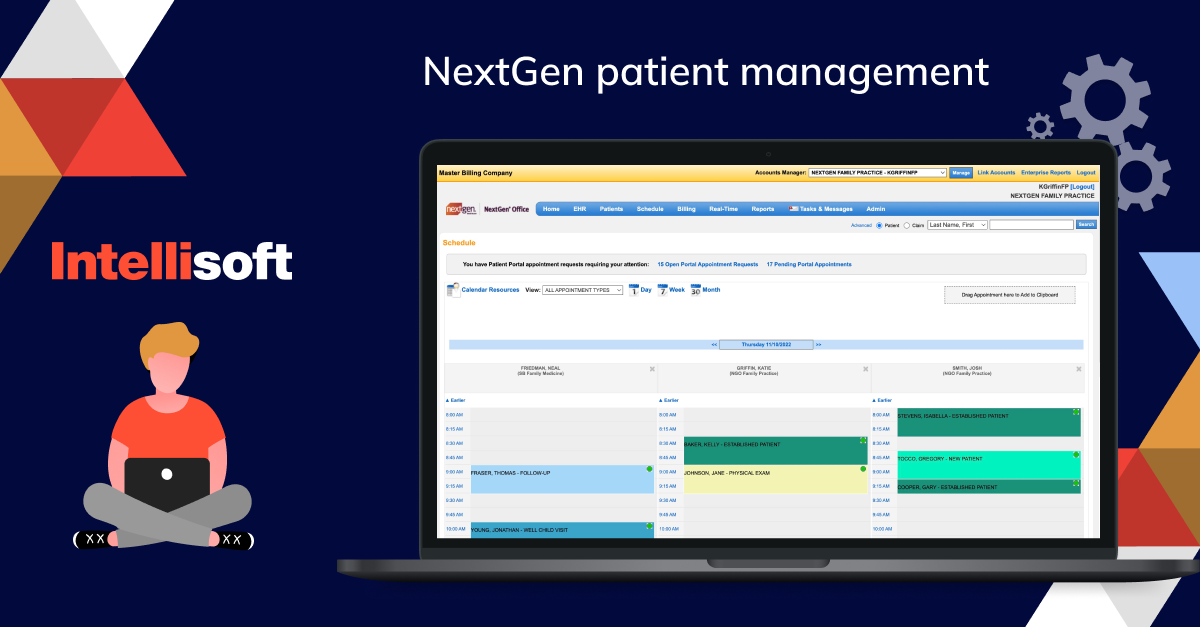
Top Benefits of NextGen:
- Streamlined electronic prescribing
- Telemedicine features to expand care delivery
- Comprehensive revenue cycle management
These SaaS patient flow management system examples are pivotal in modernizing healthcare operations. They offer scalable, secure, and efficient solutions that cater to the industry’s dynamic needs.
Transforming Healthcare with Advanced Patient Management Systems
From the robust features of custom systems to the agility and cost-effectiveness of SaaS solutions, healthcare providers can choose solutions that best fit their unique needs. Many providers opt for off-the-shelf SaaS solutions due to their convenience and speed. However, some healthcare environments have specific demands that require customized solutions. This is where IntelliSoft excels.
With a deep understanding of the healthcare sector’s nuances and challenges, IntelliSoft offers tailored PMS development. Our custom solutions ensure that every aspect of patient care and administrative handling is optimized for efficiency, compliance, and user-friendliness.
Why Choose IntelliSoft for Your PMS Development?
We develop patient management systems that are meticulously tailored to meet the unique needs of your healthcare organization. Our systems are designed with stringent security measures and compliance standards, ensuring patient data is always protected. IntelliSoft systems seamlessly integrate with existing workflows and software tools, enhancing functionality without disrupting operations.
With years of experience in healthcare software development, IntelliSoft is a partner you can trust to deliver high-quality, effective solutions. Investing in a custom patient management system project developed by IntelliSoft allows you to transform your healthcare practice to meet modern patients’ expectations and today’s efficiency demands. Contact IntelliSoft today to discover how our custom patient management solutions can revolutionize your operations.

